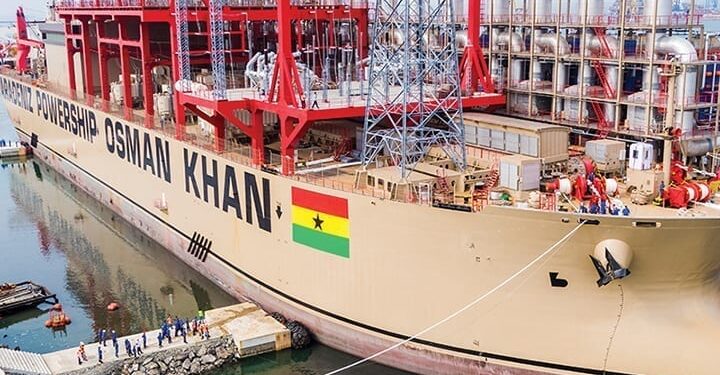Ghana’s energy sector is at risk of a major crisis as Karpowership, the operator of the Aboadze power barge, has warned of a potential suspension of electricity supply if the government fails to settle an outstanding debt of $379 million.
The Electricity Company of Ghana (ECG), the state-run power distributor, owes the amount, contributing to the country’s ballooning energy sector liabilities, which have now surpassed $3 billion.
Government in Crisis Talks
The warning was issued during a high-level meeting on February 10, 2025, between Energy and Green Transition Minister John Abdulai Jinapor and officials from Karpowership.
The meeting sought to find immediate solutions to prevent power cuts that could disrupt economic activities nationwide.
Minister Jinapor acknowledged the urgency of the situation and appealed to Karpowership to hold off on any drastic measures while the new administration explores strategies to settle the debt.
Read Also: EU provides GHC 1.6M to combat Ghana’s cholera outbreak
However, with no concrete payment plan announced, fears of a power crisis continue to grow.
IMF Flags Ghana’s Energy Debt as a Major Economic Risk
The International Monetary Fund (IMF) has repeatedly warned that Ghana’s energy sector debt poses a serious economic risk.
The IMF has urged the government to implement sweeping reforms to address the persistent financial strain within the power sector.
The debt crisis has been fueled by inefficiencies in revenue collection, poor financial management, and unsustainable power purchasing agreements.
Despite previous government interventions, ECG continues to struggle with liquidity challenges, making it difficult to meet its obligations to power producers.
Potential Impact of a Power Cut
If Karpowership follows through with its threat to suspend electricity supply, Ghana could experience severe power outages, commonly referred to as “dumsor”, which have historically disrupted businesses, industries, and daily life.
Key sectors at risk include:
- Manufacturing and industries – Reduced productivity, potential job losses, and increased operational costs.
- Businesses and commerce – A decline in economic activities, especially for small and medium enterprises (SMEs).
- Healthcare services – Strain on hospitals and medical facilities relying on consistent power supply.
- Households – Increased reliance on expensive alternative power sources such as generators.
Pressure on Government to Act
With Ghana’s economy still recovering from recent fiscal challenges, the government faces mounting pressure to prioritize energy sector reforms, enhance revenue collection, and renegotiate power agreements to avoid further financial strain.
Energy analysts warn that without a sustainable long-term solution, Ghana could continue to face recurring power crises, which could deter investors and slow economic growth.
For now, all eyes are on the government’s next move, as Ghanaians brace for potential disruptions in power supply if a resolution is not reached soon.

























